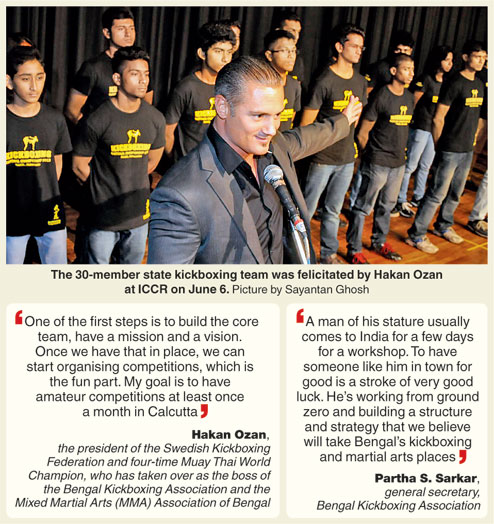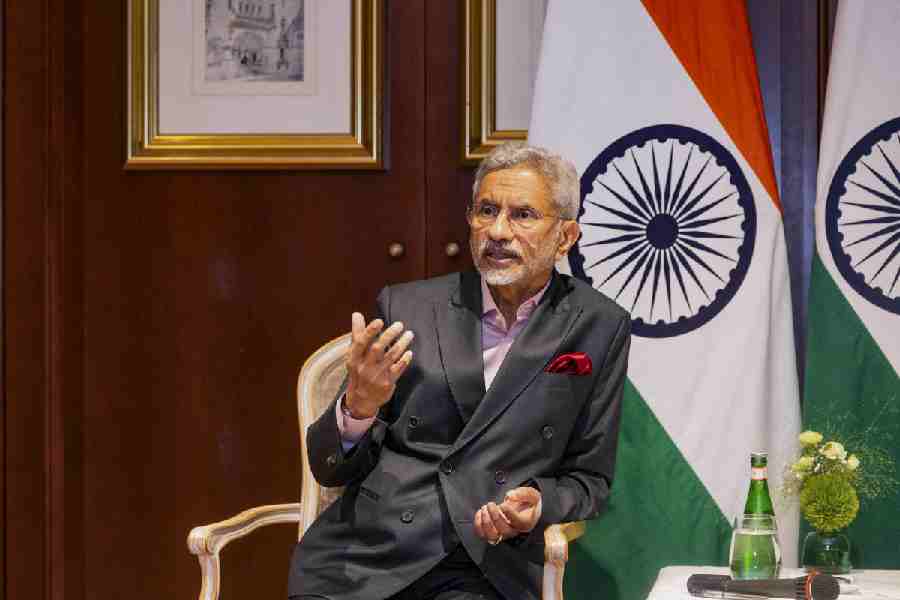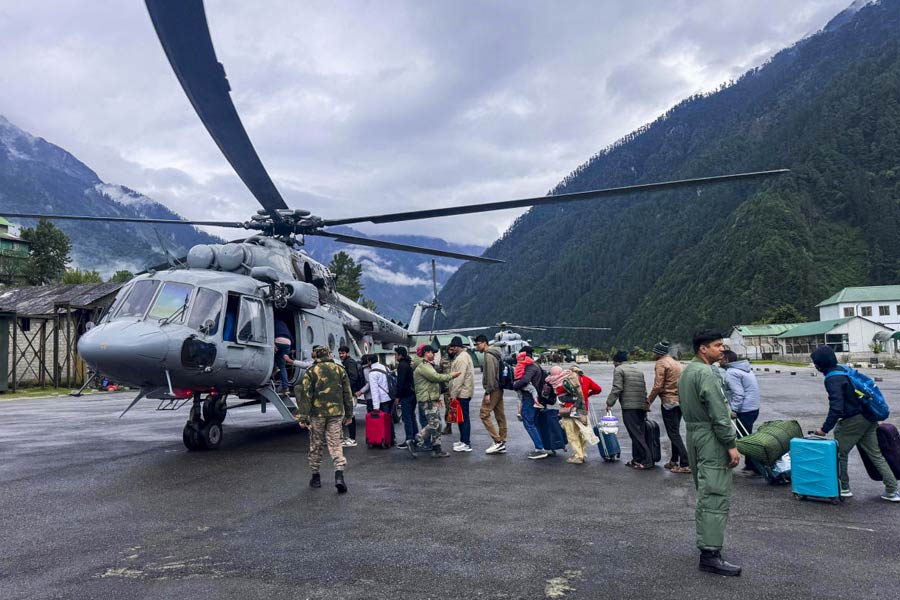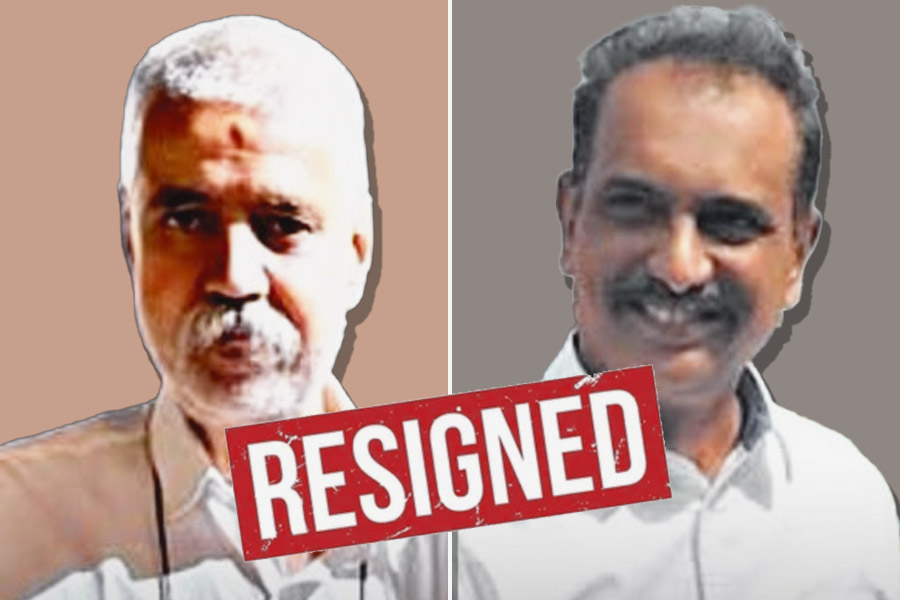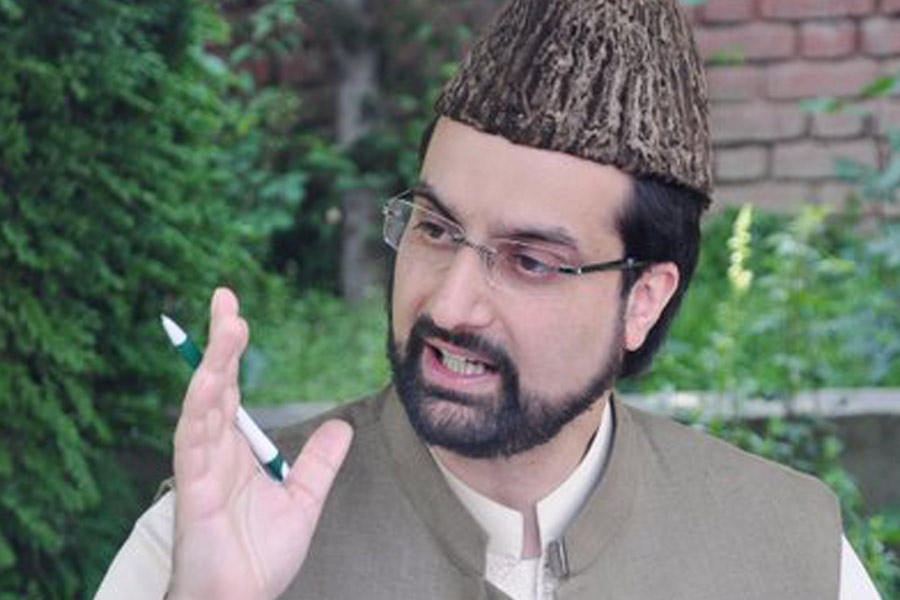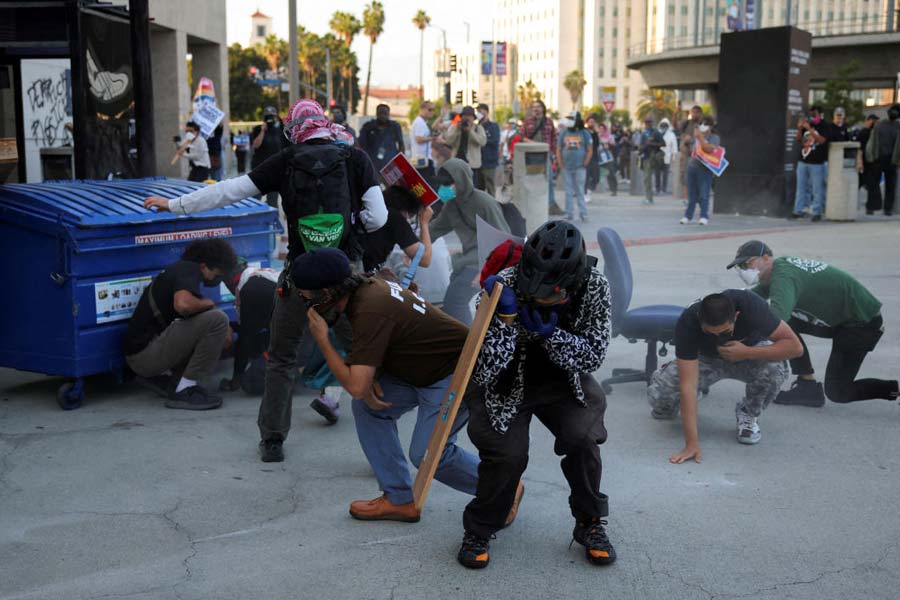 |
What do Bengal and Sweden have in common? The president of their kickboxing federations!
Hakan Ozan, four-time Muay Thai World Champion, settled in Calcutta for a new global social media venture, has taken over the reins of the Bengal Kickboxing Association and the Mixed Martial Arts (MMA) Association of Bengal with plans to make Bengal the “martial arts capital of India”.
“This will be a big step ahead,” Hakan told Metro at his Elgin Road office on Wednesday, a day after he received verbal confirmation from the ministry of external affairs that he could take over as the Bengal association’s boss in an honorary capacity.
Ninth months in the city, Hakan, who also holds the post of the president of the Swedish Kickboxing Federation, currently trains out of his Sunny Park living room and recently started classes at Gold’s Gym Alipore.
“I didn’t expect this kind of interest in Calcutta. I must have received over 200 email inquiries and around 10-15 people have even landed up on my doorstep (after Metro carried an article on April 25). The day I was leaving Calcutta for a trip to Bangkok, someone even stopped me at the baggage belt asking if he could train with me!” said the 41-year-old.
Hakan started with martial arts in 1978 and went into kickboxing and Muay Thai in 1987.
“A man of his stature usually comes to India for a few days for a workshop and his stay and travel is paid for. To have someone like him in town for good is a stroke of very good luck. He’s working from ground zero and building a structure and strategy that we believe will take Bengal’s kickboxing and martial arts places,” said Partha S. Sarkar, the general secretary of the Bengal Kickboxing Association, who voluntarily stepped down as president when he read about Hakan (in Metro and t2) and asked him if he could lead the pack.
At present, there is no unifying force that brings all the “small groups” together. The Bengal Kickboxing Association covers kickboxing, Muay Thai, karate, taekwondo, wushu and kung fu in some forms. Under the banner of MMA comes all this plus judo, wrestling and Brazilian jiu-jitsu.
“The problem has been segregation,” said Sarkar, “But we hope to get people to collaborate without making it a profit-making association.”
In fact, in the last few weeks, four-five bodies have shown interest to work together under one umbrella.
“We need people to work together, train together and have competitions. That will be a major change. One of the first steps is to build the core team, have a mission and a vision,” said Hakan, who developed a similar plan for Sweden four years ago after taking over as president of the kickboxing association.
At least on this front, Bengal is not lacking in talent. At the National Kickboxing Championship 2013 held in Nasik between May 31 and June 2, the state team had the topper’s haul of eight gold, four silver and seven bronze.
But no proper rule structure and grading system in Bengal has also led to “falsified standards” and “undeserving black belts” in martial arts.
“To counter this, we will bring out a unified and internationally-adapted rule system that will address things like a dress code and which moves are banned, all summed up in one comprehensive document. That might even make Bengal aligned more internationally than with India. Once we have that in place, we can start organising competitions, which is the fun part!” said Hakan, who has had some “70 professional fights”, his last one a bare-knuckle fight in Thailand in 2011.
“To be better in fighting, you have to fight! My goal is to have amateur competitions at least once a month in Calcutta and for that we need to join hands,” stressed the champ.
The next logical step is professional fights “which will interest the public”.
“Here, the risk increases, the shin guards come off; glamour makes an entry, people become heroes and they come on TV. They can even earn decent money,” said Hakan, who “might just go” back to fighting after he was recently invited for the Super Fight League, formed in 2011 by Sanjay Dutt and Raj Kundra.
But more than anything, Hakan hopes to bring about a “holistic change in the way people here perceive fitness”.
“People train for 40-50 minutes and then go and eat huge portions of biryani. But fitness is a 24X7 job,” said the multi-tasker, who is already juggling his passion with his IT profession that keeps him on his toes from 7.30am to 1am.
“He’s like the grandparent of the house now. For 30 years, we have been running the federation and nothing has happened so now we have to stop planning our way and go his way. He’s the electronic guy with electric speed,” signed off Sarkar.
And given the state of affairs in Bengal, it won’t be surprising if the new martial arts boss of Bengal finds on his doorstep a queue of women turning to martial arts to fight the fear — and harassers.
Bodies and individuals keen on collaborating can email: mmawestbengal@ gmail.com and kickboxingbengal@ gmail.com
Can Bengal become the martial arts capital of India? Tell ttmetro@abpmail.com

